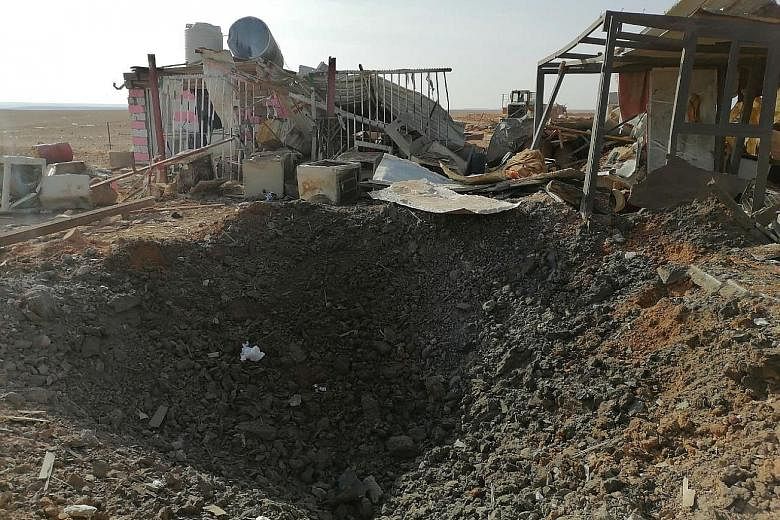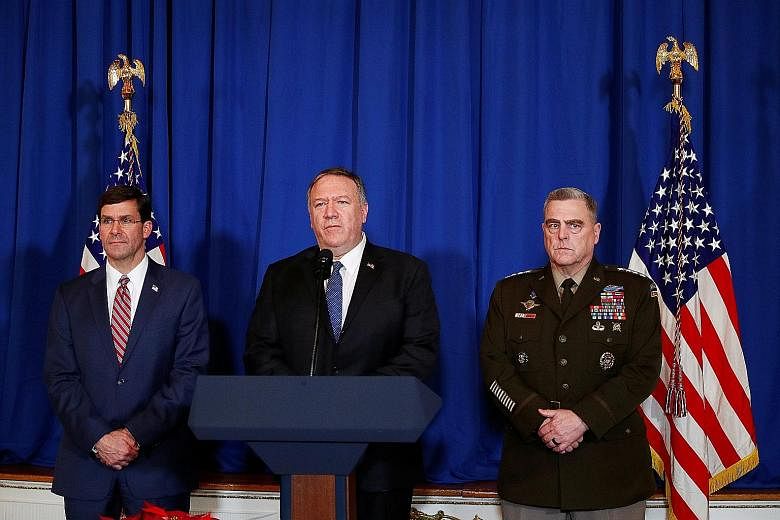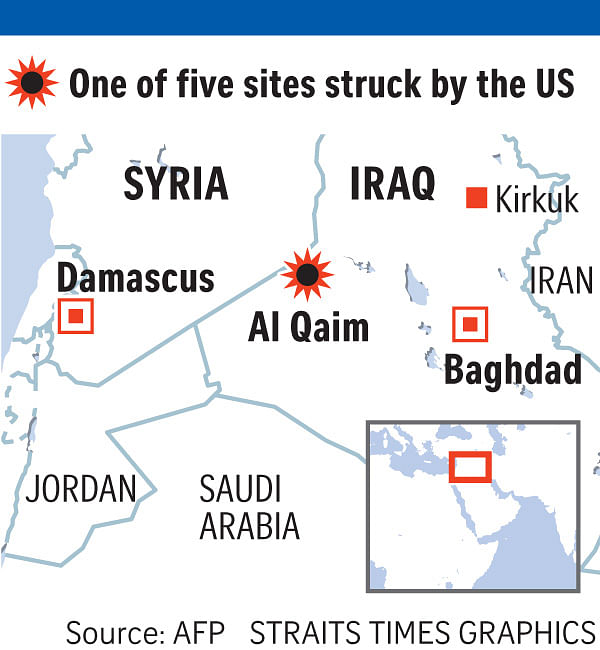BAGHDAD • A top Iraqi militia leader has warned of a strong response against United States forces in Iraq following air strikes in Iraq and Syria on Sunday that hit several bases of his Iranian-backed group and killed at least 25 people.
The warning in Baghdad came a day after US Defence Secretary Mark Esper said Washington had carried out military strikes targeting Kataib Hizbollah, or Hizbollah Brigades, which the US blames for a rocket attack that killed an American contractor in Iraq last week.
"The blood of the martyrs will not be in vain and our response will be very tough on the American forces in Iraq," Kataib Hizbollah leader Jamal Jaafar Ibrahimi, known by his nom de guerre Abu Mahdi al-Muhandis, said late on Sunday.
Mr Muhandis is a senior commander in Iraq's Popular Mobilisation Forces (PMF), an umbrella grouping of paramilitary groups - mostly consisting of Iran-backed Shi'ite militias - that was formally integrated into Iraq's armed forces.
US Secretary of State Mike Pompeo said the strikes send the message that Washington will not tolerate actions by Iran that jeopardise American lives.
The US military said "precision defensive strikes" were conducted against five sites of Kataib Hizbollah - a separate force from the Lebanese militant group Hizbollah - in Iraq and Syria.
Iraqi security and militia sources said one of the strikes had targeted the militia group's headquarters near the western Qaim district on the border with Syria. There was no immediate comment from the Iraqi government on the air strikes.
The US blames the militia for a rocket barrage last Friday that killed an American defence contractor at a military compound near Kirkuk, in northern Iraq. Officials said as many as 30 rockets were fired in that attack.
The PMF said on Sunday that the US strikes killed at least 19 Kataib Hizbollah members. But the group's spokesman Mohammed Mohieh told Associated Press yesterday that the death toll had risen to 25. At least 51 militiamen were wounded and some of them were in serious condition, he said, adding that the group's commanders would decide on the retaliation.
Mr Muhandis is one of Iraq's most powerful men. He once battled US troops and is now the deputy head of the PMF. In 2009, the US State Department linked him to the elite Quds Force of Iran's Revolutionary Guard, designated a foreign terrorist organisation by US President Donald Trump earlier this year.
In Teheran, Foreign Affairs Ministry spokesman Abbas Mousavi condemned the US strikes against Kataib Hizbollah as an "obvious case of terrorism" and accused Washington of ignoring Iraq's sovereignty.
Lebanon's Iran-backed Hizbollah also blasted the "brutal American aggression".
Iraqi security sources said yesterday that US forces in Iraq's northern Nineveh province were ramping up security overnight, with US-led coalition jets circling the perimeter of its military bases in Mosul and Qayyarah.
The US maintains some 5,000 troops in Iraq at the invitation of the Iraqi government to assist and train in the fight against the Islamic State in Iraq and Syria (ISIS) militant group.
The PMF had bolstered Iraq's security forces during their battle to retake a third of the country from ISIS, helping secure victory against the militants. The PMF was later formally integrated into Iraq's official security structure and also wields large political influence.
The attack that killed the American contractor and US counter-strikes come as months of political turmoil roil Iraq.
Thousands have taken to the streets to condemn, among other things, militias such as Kataib Hizbollah and their Iranian backers. They are also demanding an overhaul of a political system they see as corrupt and that keeps most Iraqis in poverty. About 500 people have died in anti-government protests, most of them demonstrators killed by Iraqi security forces.
The mass uprisings prompted the resignation last month of Iraqi Prime Minister Adel Abdul Mahdi, who remains in a caretaker capacity.
Tensions have risen between Teheran and Washington - Iraq's two main allies - since last year when President Trump pulled Washington out of Teheran's 2015 nuclear deal with six major world powers and reimposed sanctions that crippled Iran's economy.
ASSOCIATED PRESS, REUTERS



